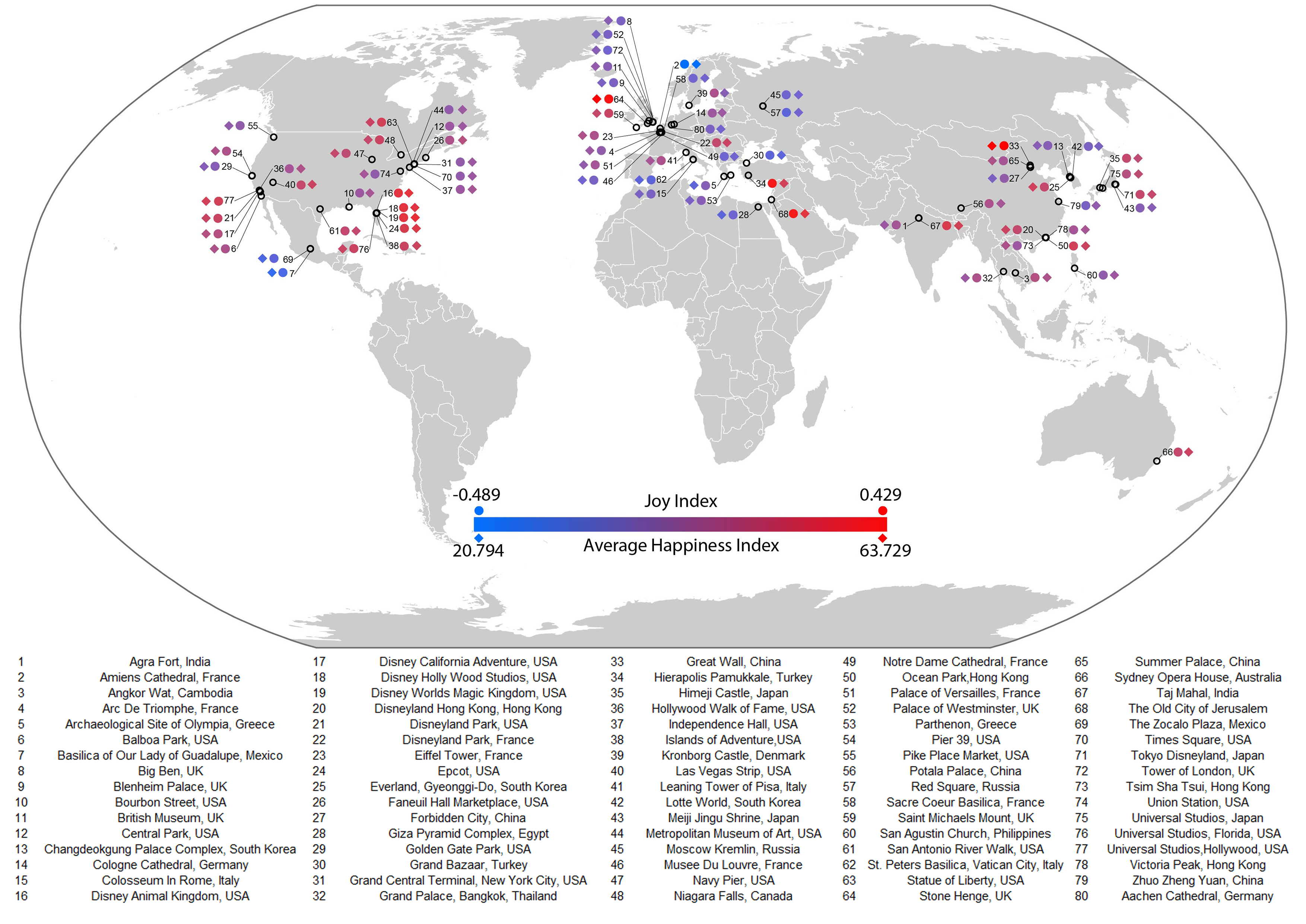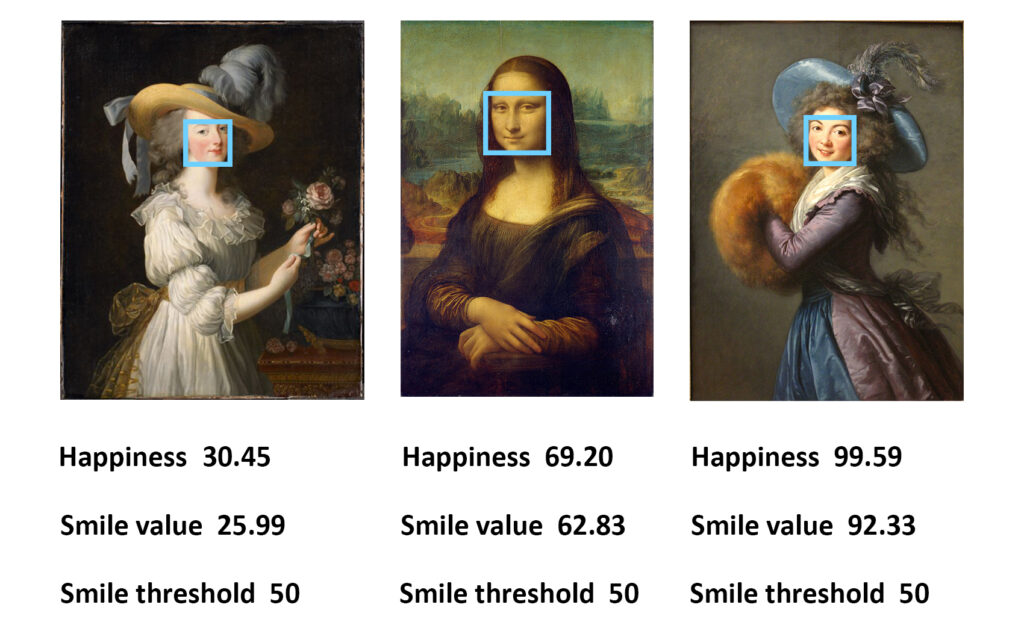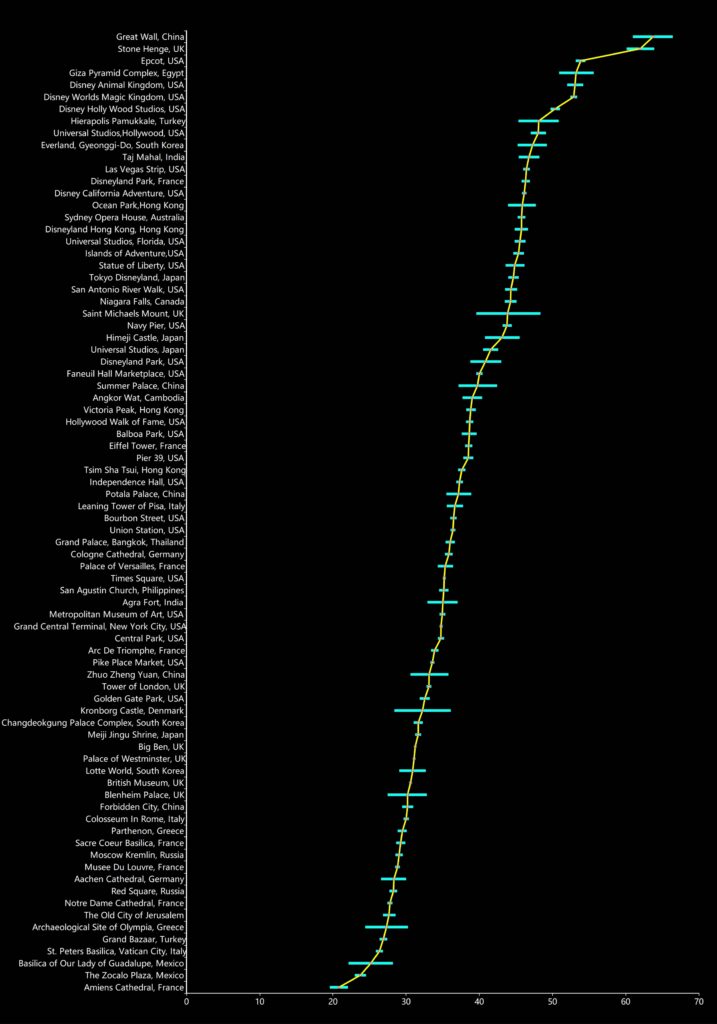Our full paper entitled “Extracting human emotions at different places based on facial expressions and spatial clustering analysis” has been accepted for publishing in the journal of Transactions in GIS, which is also part of the special issue on GIScience Research Sessions for the 2019 Esri User Conference.
Authorship: Yuhao Kang, Qingyuan Jia, Song Gao, Xiaohuan Zeng, Yueyao Wang, Stephan Angsuesser, Yu Liu, Xinyue Ye, Teng Fei.
This paper proposes a methodology framework to measure human emotions at places with advanced artificial intelligence technologies and explore the relationship between human emotions and environmental factors. And a ranking list of tourist attractions around the world is created based on human happiness measured using over 2 million facial expressions.

Related to this work, Yuhao Kang won the first place in the 2019 AAG Robert Raskin Student best paper competition. Link: http://gis.cas.sc.edu/cisg/?page_id=126
Here is the abstract: The emergence of big data enables us to evaluate the various human emotions at places from a statistic perspective by applying affective computing. In this study, a novel framework for extracting human emotions from large-scale georeferenced photos at different places is proposed. After the construction of places based on spatial clustering of user generated footprints collected in social media websites, online cognitive services are utilized to extract human emotions from facial expressions using state-of-the-art computer vision techniques. And two happiness metrics are defined for measuring the human emotions at different places. To validate the feasibility of the framework, we take 80 tourist attractions around the world as an example and a happiness ranking list of places is generated based on human emotions calculated over 2 million faces detected out from over 6 million photos. Different kinds of geographical contexts are taken into consideration to find out the relationship between human emotions and environmental factors. Results show that much of the emotional variation at different places can be explained by a few factors such as openness. The research may offer insights on integrating human emotions to enrich the understanding of sense of place in geography and in place-based GIS.

